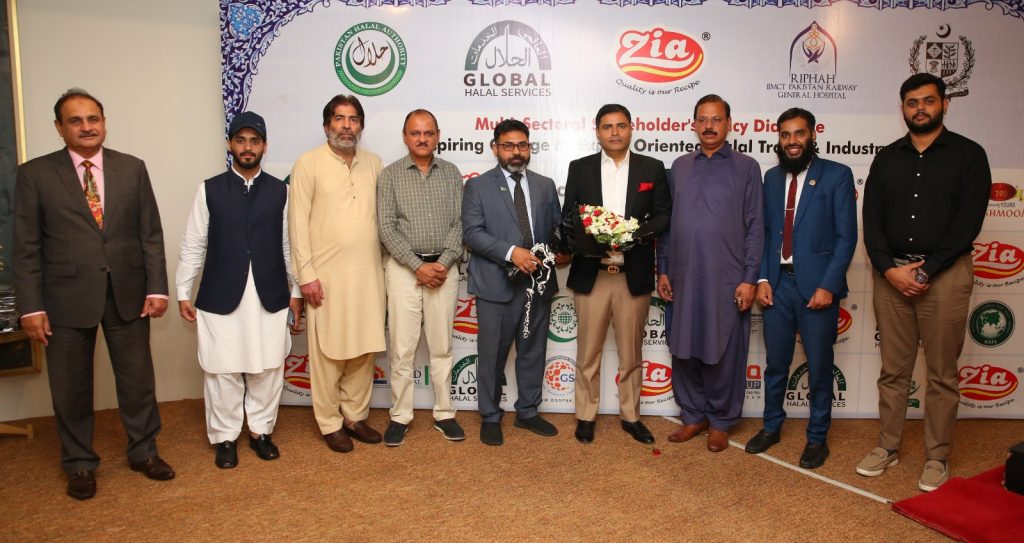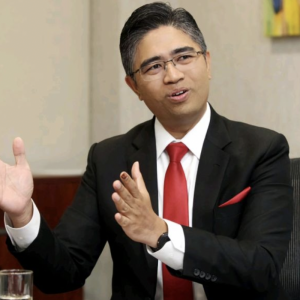By Yasir Habib Khan – The News on Sunday
 Pakistan’s economic growth can be doubled if the government properly taps the expanding world halal market
Pakistan’s economic growth can be doubled if the government properly taps the expanding world halal market
As the demand for halal food surges, international food chains have harmonised themselves with halal trends. Being certified as halal, McDonald, KFC, Burger King and others have witnessed an increase of 30 per cent customers around the world.
The International business environment is lucrative and Pakistan is spotted nowhere in the world halal market. As per the Ministry of Commerce figures, Pakistan’s share in the rapidly growing halal industry is very negligible and stands at less than 0.3 per cent of total global business. So far the government has not formulated any regulatory framework to run the industry and channelise halal trade with the diversity of meat by-products, milk and allied industries, financing, gelatin, beverages, cosmetics, confectionery, pharmaceutical and personal care. It also lacks international standards, system of certifications, SOPs, guiding principles, skilled human power, capacity-building, coordination amongst relevant ministries, departments and digital marketing strategies.
Pakistan has the capacity to nurture the halal market to boost its ailing economy. Over 40 million people are engaged in livestock business. It boasts 99 per cent halal livestock value chain ranked as the 4th largest livestock population in the world. Poultry industry is progressing with an annual growth rate of 10 to 15 per cent.
“Pakistan has robust potential to tap a sizeable share in global halal market by projecting and developing itself as a ‘halal Hub’ in the international market,” LCCI sitting convener of Export Committee, Abdul Basit, told TNS.
Industry, he lamented, demanded that the government devise a law to have a considerable distance between two farms to prevent disease transfer, but it did not materialise. “World halal market was ready but the government seemed unprepared to cash in on the situation,” he said.
According to statistics, 1.7 billion of Muslims or 24th of world population around the globe make this segment of market very attractive. The Muslim population is growing at the rate of 2.9 per cent per annum and is expected to be 30 per cent of the world’s total population by 2025. With this growth, the global demand for halal food and Sharia compliant products and services continues to increase. Surprisingly, more than 80 per cent of the world halal trade is done by non-Muslim countries including India, Thailand, China, Brazil, Australia, US and Europe , who have utilised the halal brand name to their economic benefit and have emerged as the biggest exporters of halal products.
Among Muslim countries, Malaysia is the leading global player in the halal market. “Pakistan has a very little share in the world’s halal industry and its halal export is restricted to only Middle East,” said Dr Tanvir, an exporter of halal food.
In the international market, Pakistani products are not considered as halal despite the fact that slaughtering, processing, packaging and other procedures are halal. A recent survey conducted by Halal Development Project Pakistan proved that people in China and Africa refused to buy Pakistani products as they did not find a halal logo on them. However, they picked up those products bearing the halal logo.
Pakistan Meat Processor and Exporter Association General Secretary, Syed Hassan Raza, said that Pakistan should develop a government body similar to the one in Malaysia, which is authorised for halal certification or halal logo to be accepted all over the world. “Halal now covers a complete range of products available in supermarkets, 5-star hotels, restaurants, fast food chains, airline meals, school dinners, military food and even in prison rations. It has become a lifestyle choice including personal hygiene,” Raza added.
It is unfortunate that none of the successive governments bothered to build a halal infrastructure in the country. The Pakistan Council for Scientific and Industrial Research (PCSIR) claimed to have established a halal authentication laboratory. However, a senior official confided that the lab lacks paraphernalia to analyse halal and haram products clinically.
Punjab Halal Development Agency (PHDA) lacks power to exercise its authority. Pakistan Halal Product Development Board (PHPDB) was set up in 2009 to promote halal export, but a formal notification by the federal government is still pending. Establishment of Pakistan Halal Authority (PHA) is still a far cry. In consultation with PHDA, Pakistan Standards and Quality Control Authority (PSQCA), Pakistan National Accreditation Council (PNAC) and other stake holders, national standards for halal industry were drafted but nobody knows when these standards will be enforced.
Private bodies, including Halal Research Council (HRC) and Halal Development Council (HDC), claim to have legal power to issue halal certification to exporters. However, the government does not recognise them.
Pakistan Halal Product Development Board Vice-Chairman Hasnain Reza Mirza deplored the ongoing state of affairs and said that a conflict was going on between the Ministry of Commerce and Ministry of Science on legal status of PHPDB. He said that trade development was the domain of Ministry of Commerce and, therefore, the halal trade development was supposed to be in the ambit of Ministry of Commerce. However, under the current trade policy, Halal trade development had been placed under the jurisdiction of Ministry of Science and Technology which was illogical, he added.
Hasnain Reza said that PHDDB has sent a letter to Prime Minister Nawaz Sharif to intervene and put the house in order.
Trade Development Authority of Pakistan (TDAP) CEO SM Muneer was of the opinion that Pakistan’s halal industry was trying to keep pace with world. “We have developed a Halal Food Department to market our products. After a Pakistan Halal Authority comes into existence, Pakistan would be in a better position to capture the market.”
Punjab Halal Development Agency Chairman Justice (retd) Khalil ur Rehman Khan said the government was working to regulate the trade and a state-of-the-art slaughtering complex in Shahpur Kangran was a step in this regard. “Slaughtering bylaws have been notified and enforced throughout Punjab. Three international conferences and expos have been held and two-million dollars contracts signed during the last one year.”
Dr Salman Shah, former caretaker finance minister and advisor to prime minister on finance and economic affairs, said, “Pakistan needs to market itself as a committed player in halal certifications.” Pakistan should become the hub of halal goods and services because of its strategic position for the Arab world and Central Asian countries, he concluded.



